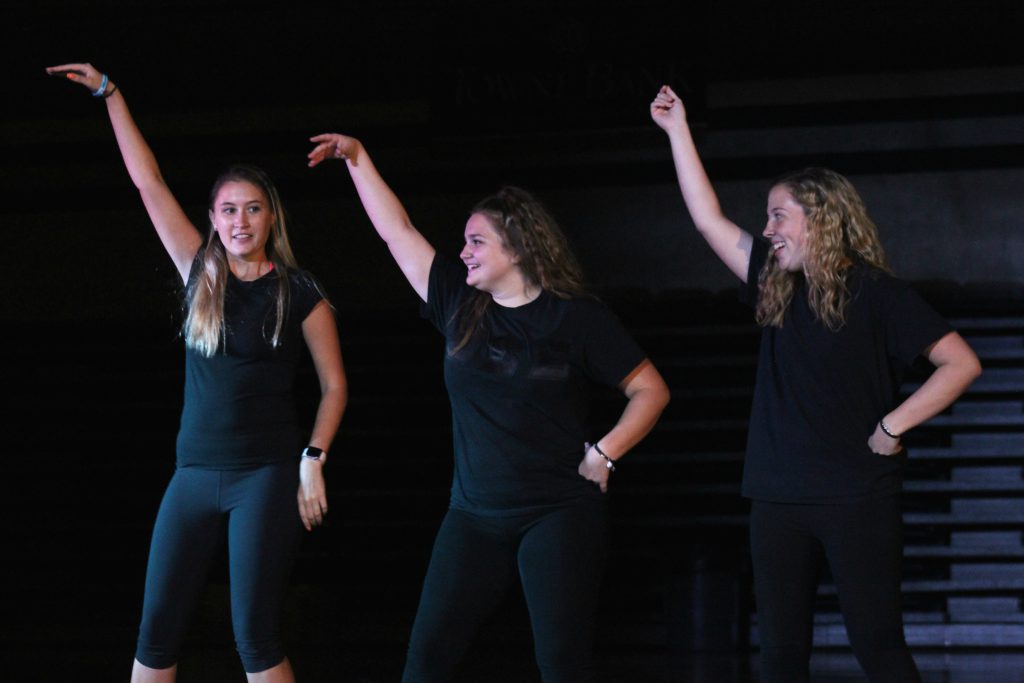Greek Week at Virginia Wesleyan University for the Spring semester was held in early February. Greek Week provided an opportunity for participants in Greek life to represent their organizations and for students to learn more about the fraternities and sororities that are active at VWU.
Greek life is an essential part of most universities. Fraternities and sororities provide college students with communities on college campuses whose networks often extend nationwide.
As of the 2022-23 academic year, Virginia Wesleyan University has eight total fraternities and sororities on campus. There are two sororities under the Panhellenic conference, two fraternities under the Interfraternity Council, and four fraternities/sororities under the National Panhellenic Council. The fraternities and sororities on campus continue to grow and develop but maintaining these communities is not without its challenges.
Greek life has experienced a tumultuous couple of years as organizations try to recover from the aftermath of the COVID-19 pandemic.
“I was one of the very first initiates after Covid hit, but two years had passed since any new members had been initiated. Covid hit us hard and in my opinion, hit all Greeks hard,” President of Alpha Phi Alpha and sophomore Judah King said.
The pandemic served as a huge obstacle to many of the practices that are necessary for growth in Greek chapters on campus. Limitations established because of the pandemic made recruitment and participation strenuous for many fraternities and sororities.
“I remember my whole rush process was very unorthodox, we usually have a set way of doing everything but when Covid hit it kind of threw it out the window,” Sigma Nu President and junior Henry Handley said.
Greek life serves to build communities on campus and each fraternity and sorority has their own unique focus. Many fraternities and sororities seek to involve their members in community service, promote academic excellence and engage in campus participation.
A common goal made by leaders of Greek life on campus is to increase engagement in community service and campus activities. Increased participation also leads to better recruitment and retention as students have opportunities to interact with Greek members
Recruitment this year is essential to many fraternities and sororities because of how badly the pandemic affected recruitment and participation. Greek life is hopeful that participation will begin to resemble that which was pre-Covid now that the intensity of the pandemic has declined.
“My hopes for the chapter are never to be in the place we were when Covid happened because no matter what, I want the chapter to be in a place where they’re self-sufficient, self-sustaining and future members won’t have to worry about engagement or about having to make a name for the chapter,” King said.
Despite its slow but steady recovery from the pandemic, Greek life struggles at times with other challenges. One of the biggest hindrances to recruitment is the social stigma that surrounds fraternities and sororities.
Over the years, Greek life in general has generated a bad reputation; fraternities and sororities in films are often depicted as disrespectful, unintelligent party houses. In contrast to this stereotype, Greek life organizations generally have goals to promote the betterment of students on campus.
The Greek life at Virginia Wesleyan University is also increasingly diverse regarding members’ interests, demographics and fields of study. Despite Greek life being vastly different from what is depicted in popular culture, many of the stereotypes drive people away from joining.
“I most certainly came to college thinking I wouldn’t join a fraternity because I thought they weren’t good people. But once I got to know some of the guys they were the nicest guys I’d ever met, and I thought I might give this fraternity a shot, and it was definitely one of the better decisions I’ve made throughout University,” Handley said.
Greek life has seen growth and development on campus over the last few years, but it has certainly not been without its challenges. Leaders and members of Greek life continue to promote growth and inclusivity in their chapters. The social community provided by Greek life and its opportunities for campus engagement continue to draw new recruits.
By Breanne Bessette
bebessette1@vwu.edu


